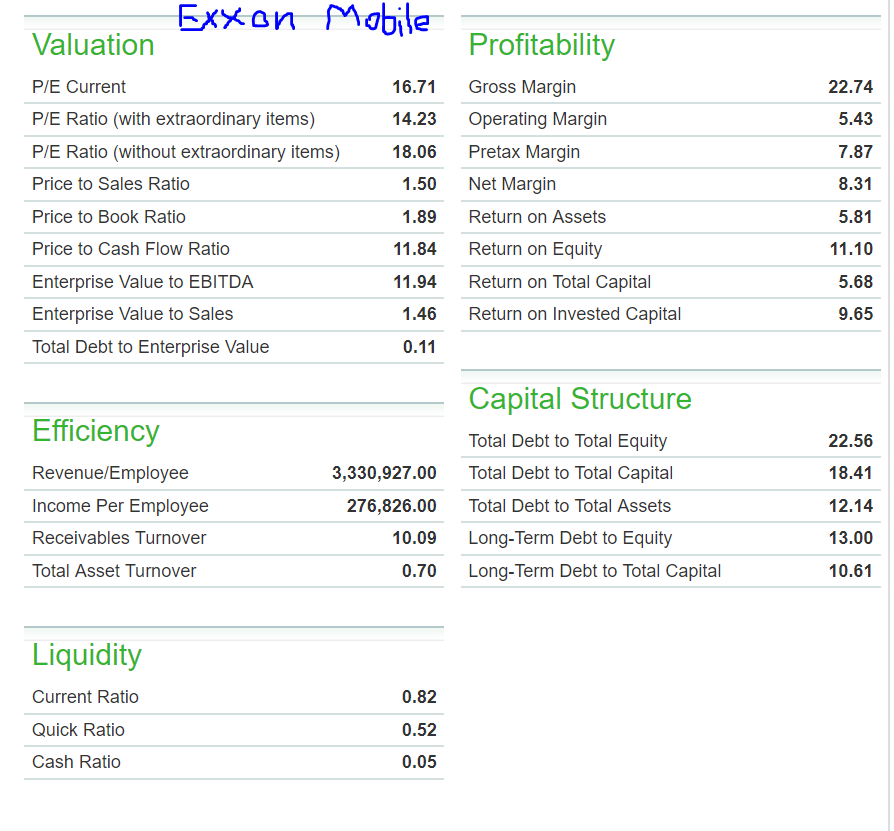social entrepreneur meaning: Social Entrepreneur Definition, Characteristics, Examples
Содержание

Leveraged Non-Profit Model – This business model leverages financial and other resources in an innovative way to respond to social needs. Entrepreneurs have the vision of how society will be different, when their idea works, and they cannot stop until that idea works across the whole society. Important characteristic of intrapreneurs is their courage and flexibility to think outside of the box, which allows them to work on ideas that may change strategic direction. Even though many managers are afraid of radical changes, they are often the only way to help companies grow. This is exemplified by Wipro in India, a small vegetable company that ended up being a software outsourcing powerhouse.

Most entrepreneurial initiatives contribute to the economy, by creating job opportunities and wealth. The social enterprise thus established must aim at generating enough wealth that can contribute to society. Various social and environmental issues encourage higher awareness. In addition, widely adopted ethical practices also open up wider opportunities for social entrepreneurship. Investors also began to introduce Environmental, Social, and Governance investing. They are often very ambitious and persistent in tackling major social issues and offering their ideas for societal-wide changes.
Roy describes Barefoot College as “the only college where the teacher is the learner and the learner is the teacher.” Kurtzman previously held the CEO position at Aid Through Trade, a company that distributes handmade accessories from Nepal around the U.S., where he was responsible for a 125% growth in sales. He also co-founded the nonprofit Operation Incubation, which delivers low-cost, low-maintenance incubators to the developing world.
These individuals are willing to take on the risk and effort to create positive changes in society through their initiatives’’. While the essence of social innovation is to create social change through new processes, products, services or programs, we cannot solve what we don’t understand. To propose effective solutions, impact the cause of the problem and avoid doing greater harm, leaders of change must understand the root causes of the social injustice or problem in all its complexity. Precisely, social entrepreneurship, also referred to as altruistic entrepreneurship, is the practice of doing business aimed at resolving social market failures and creating opportunities to add social value systematically. For example, some social enterprises focus on providing jobs and empowering members. They then market the product and reinvest the profits by offering training or building facilities such as education or health.
It’s important to note that a business can be concerned with and contribute to social causes without being a social-entrepreneurial venture. Corporate social responsibility is when a business adopts policies that positively impact society, often guided by ethics. For example, a company may donate to charitable organizations or offset their carbon emissions to mitigate environmental harm. Some social business ventures are nonprofits, while some social entrepreneurs aim to help society while generating a profit. An unwavering belief in the innate capacity of all people to contribute meaningfully to economic and social development a driving passion to make that happen. Entrepreneurs have high standards, particularly in relation to their own organization’s efforts and in response to the communities with which they engage.
Sometimes, this is the people in their specific geographical region. Other times, this is people within a certain demographic (i.e. people with low income). Without a clear definition of who the social entrepreneur wants to serve, they will face difficulty in appropriately defining the scope of their enterprise. This puts the yet-to-be-created entity at risk of not having a clear vision. The term Social entrepreneurship is used for those businesses which work with a purpose to make a positive change in society. Social entrepreneurs pick one social cause that they believe in and design their business plan to support that cause.
Meaning and Concept Social Entrepreneurship
These entrepreneurs focus on large-scale issues with mass appeal in various settings and understood by people. The organisation aims to solve the problem of hunger and education among children who can’t afford the same. Started as a local mission, the solution has now found its application in other Asian countries. Entrepreneurship has been the booming and most pursued carrier option in recent times.

Running a business helps Rebecca make money that she can use to expand her café and support social causes. Most importantly, she can contribute to the greater good of society by employing poor people, which improves their well-being. Thus, Rebecca’s café becomes a social enterprise that brings a positive change in society. Social entrepreneurship continually evolves; what may be a local communal non-profit one year may model into a global social enterprise the next.
How Do Social Entrepreneurs Make Money?
They prepare a strategic plan to deal with the problem, and like other entrepreneurs, they also work hard to reach their goal. Ashoka is a nonprofit organization that connects and supports social entrepreneurs. They believe that everyone can positively change the world and use their network to organize funding and support for other social entrepreneurs.
Project outlay can go up to Rs. 2 lakh for activities other than industry, and Rs. 5 lakh for industrial enterprises. Experience of recent year’s shows that it is more urban-oriented as the response is better there; while awareness in rural areas, specially among weaker sections and women, is still limited. The ventures can be promoted in either industry, service, business, or agro-related activities. However, it has been reported that the Government has proposed sweeping changes in the prevailing laws for environmental clearance so as to facilitate industrial development. This has evoked strong reactions from environmentalists, who allege that the government has quietly made serious compromises on the issue of environment protection. Accountability on the part of the entrepreneurs are equally important while carrying out its business activities.
The need for and significance of social entrepreneurs is imbued with multiplicity of justifications. While a business entrepreneur may create entirely new business enterprise, a social entrepreneur comes up with new solutions to daunting social problems and then implements them on a large-scale that benefits humanity. Although the terms are relatively new, both social entrepreneur and social entrepreneurship are found throughout history. Social entrepreneurs are individuals with innovative solutions to society’s most pressing and daunting social problems. They are ambitious and persistent, tackling major social issues and offering new ideas for wide scale change. Social entrepreneurship occurs when “A person who pursues an innovative idea with the potential to solve a community problem.
Entrepreneur – Self-Employment Programmes for Entrepreneurs
So, with entrepreneurship, they can support their income and the community around them. Bill Gates got the world’s attention as a commercial entrepreneur, but he quickly shifted his interest toward social entrepreneurship. Transformational social enterprises have better access to the top talent because of their size and budget. They also recruit people and provide them with in-house training and mentorship to meet the organization’s talent requirements. The visions of social entrepreneurs must be bigger than just alleviating the current conditions. They need to thoroughly understand the system they work in fully and then make a systematic and specific approach towards achieving their visions.
Social entrepreneurship is when a startup company is founded with a mission to promote social good. These are often for-profit ventures that leverage technology and ingenuity to solve problems of societal importance such as hunger, disease, and inequality as well as environmental issues. Strong determination.Social entrepreneurship often has the desired impact in the long term rather than the short term. In addition, by taking risks to make a social impact, social entrepreneurs may find theirbusiness ideaa loser and difficult to sustain. It is concerned with helping to improve aspects such as quality of life, economic skills, and knowledge of the community.
Alongside creating the social impact you will find generating profit as a priority in the business plan of many impact-oriented companies. Following TOMS’ success, Warby Parker similarly launched their “Buy a Pair, Give a Pair” program, which has resulted in the company donating over five million pairs of glasses to people in need as of 2019. In 2015, Warby Parker launched their “Pupils Project,” which is a program that works with local government agencies to provide free vision screenings, eye exams and glasses to school children in New York City and Baltimore. Most young entrepreneurs will begin with idealism and fervor and work on passion to keep their startup going.
P’s of Social Entrepreneurial Enterprises
As https://1investing.in/ entrepreneurs embark on turning their ideas into successes, they often work through the following six areas. Each of these categories are different resources, roadblocks, or stages a social entrepreneur must often encounter. As a start-up non-profit social enterprise grows, it often shifts into becoming a transformational social entrepreneur.
- We can see why social entrepreneurs are important from the impact they make.
- In this instance, a diverse stakeholder could consist of people in the affected communities, relief workers and NGO managers, among others.
- Entrepreneur must be able to adopt various mechanisms to control the level of stress.
- A panel discusses social entrepreneurship in the health care sector in 2015.
- There are some basic skills you need to adopt as an entrepreneur to run any kind of business.
It includes new processes of production, introduction of new products, and creation of new markets, discovery of a new and better form of industrial organisation. Personality and Individual skill – Impressive personality and individual skill help to develop entrepreneurship. These qualities are inevitable for entrepreneurs since they have to work with officers, engineers, labourers, customers, investors, Govt. ‘Richard Cantillon’ was the first person who introduced the term ‘entrepreneur’ and his unique risk-bearing function in economics in the early 18th century.
Transformational Social Entrepreneur
Experimentation – The netpreneur must be willing to try out new social entrepreneur meaning in the marketplace. Experiment and be ready to move quickly to adapt to what the market tells the Netpreneur. Pace – With advances in computing, globalization, the changing expectations of stakeholders, and the emergence of the Internet, the speed of change is faster than ever. Joan B. Kroc School of Peace Studies’ mission is to equip and empower innovative changemakers to shape more peaceful and just societies. Our hyperconnected, fast-moving and complex world demands fresh ideas, alternative approaches and new ways of doing things to shape a better future.
Talk Local: Dylan Rafaty – Local Profile
Talk Local: Dylan Rafaty.
Posted: Wed, 01 Mar 2023 19:30:00 GMT [source]
In one year, four native advertisement formats were created on web and mobile, and had more than 100 brands advertising on Tumblr with 500 cumulative sponsored posts. Instagram has an interaction rate of 1.46% with an average of 130 million users monthly as opposed to Twitter which has a .03% interaction rate with an average of 210 million monthly users. Distribution Driven – The real challenge in today’s business world is distribution.
Once you will have such knowledge you will be able to select the tools that your budget permits. A rural industrial consultancy service has been established in KVI institutions, and through reputed NGOs, technical institutions, and chartered accountant firms. Marketing support is extended to REGP enterprises through KVI network of sales outlets and voluntary organizations. Institutions/cooperative societies/trusts can take up projects by investing up to Rs. 25 lakh. SHGs may undertake common economic activity for which loan is sanctioned based on project approach without resorting to onward lending to its members. Loan may be provided as per individual eligibility, taking into account the requirements of the project.
Nonprofits and for-profit businesses can team up to form a hybrid business model, led by a new generation of social entrepreneurs. These leaders successfully tackle social issues while generating profit for shareholders. Once they achieve successful results in their communities, they try to expand and reach other communities, paving the way for becoming a bigger social enterprise. Many large-scale social enterprises begin as community social entrepreneurship. However, there is a distinction between a charitable organization and a social enterprise.